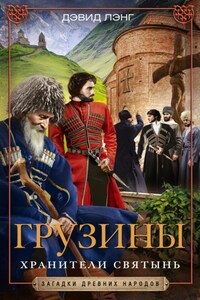Scientific readers: Victor V. Kondrashin, DSc, and Vladimir B. Kulikov, PhD.
Special thanks to Russian philanthropists Artem Suetin and Gennadiy Chernushkin, who helped to publish this book.
© Trojan Horse (rus. ed.) Piter Publishing House, LLC, 2014
© Translation A. Belyakov, O. Matveychev, 2015
© Design of English edition, Piter Publishing House, LLC, 2015
We’ve decided not to write a traditional foreword, but to offer ten different answers to the question of what kind of book we have produced, instead.
Here they are:
1. This book is about the fact that the Trojans defeated the Greeks and not the other way around, as it is commonly believed.
2. This book is about the fact that the well-known Greek religion with its specific anthropomorphism was artificially created for some political reasons.
3. This book is about the fact that soft power, information warfare and falsification of history do not constitute innovations, but are the oldest essential features of the Western mind.
4. This book refutes the conventional wisdom that “history is written by the victors”. On the contrary, we have proven that the victors are the ones, who have managed to write history.
5. This book is about our postmodern world, where universals contradict one another, each of them entailing other universals as “my other”, and we have shown the horizons in terms of solving the problem of postmodernism.
6. This book tells the story of exciting journeys to both ancient Troy and to modern Troy.
7. This is a book that all will be able to comprehend, not only those educated in human sciences, because it is as bright, lively and entertaining as a mystery thriller.
8. This is a book of science, which opposes the fashionable sensational historical junk food that has recently appeared in bookstores under the anarchic banner of “Anything goes”.[1]
9. This book is about the struggle for historical truth and justice, immersing us in the world, because without truth we are orphans.
10. This book is about history unfolding like a musical piece, and by an audible note we can’t guess the previous note, and neither we can predict the next one or project the present into the past and the future. To hear the music of history one must have the historical ability to hear.
Chapter 1
Mega-mall to megaron. Pilgrimage to the land of Homer
It took us half an hour to get from Europe to Asia. This is the exact amount of time it takes for a car-ferry connecting the Gallipoli peninsula with the Anatolian coast to cross the Dardanelles. We got to our final destination in about an hour from the fishing town of Gelibolu. During this last part of our journey we were overtaken with a special feeling. The road to Troy! This phrase so full of solemnity put us into a poetic mood. We felt like echoing Homer’s Zeus:
For of all cities beneath sun and starry heaven wherein men that dwell upon the face of the earth have their abodes, of these sacred Ilios was most honoured of my heart.
Iliad. IV. 45–46.
The landscape outside the window, however, conflicted with the state of our mind. Scant vegetated low hills alternated with sunflower and small pine wood plantations. Only a thin blue band on the horizon reminded us that we were coming to the centre of what used to be a mighty marine state in ancient times. Behind a stunted cornfield, we turned to a rural road. In other five minutes we arrived in the village of Tevfikye. It was Ramazan, and Troy was opened for visitors only after 1 p.m. In a café near the souvenir shop we had the very Turkish tea in small glasses and stared at the Greek tourists, who arrived by a huge bus. Deciding not to wait for the opening, but to buy some wooden horses and fridge magnets instead, they finally got back on their bus and moved on to the places where Hellenes had won honor in battles.
Fig. 1. The Troad is the ancient name of the Biga Peninsula, where legendary Troy is located.
Pilgrimage to these lands is a very old tradition. Every such pilgrimage can become a plot of a book, and it often has been a key event in global history.
In 480 B.C., while marching against the Greeks, Persian King Xerxes stopped his troops on the Hellespont coast. Two boat bridges were built across the narrow strait. Suddenly a storm started, destroying the bridges kept together with papyrus ropes, after which the King commanded to lash defiant waters and behead the builders. Before a new ferry was built, Xerxes visited the legendary fortress. According to Herodotus, the King “ascended to the citadel of Priam, having desire to view it, and having viewed and inquired of all that was there, he sacrifices 1,000 oxen to Athena Ilias, while the Magi offered librations to the heroes”.[2] However, the generous hecatomb did not help Xerxes to break the Greek spirit down or to conquer Greece. Having suffered some crushing defeats from the Greeks, having ceded them some of his land and having reduced the country to famine with his military adventures, Xerxes was murdered in the bedroom of his own palace.








